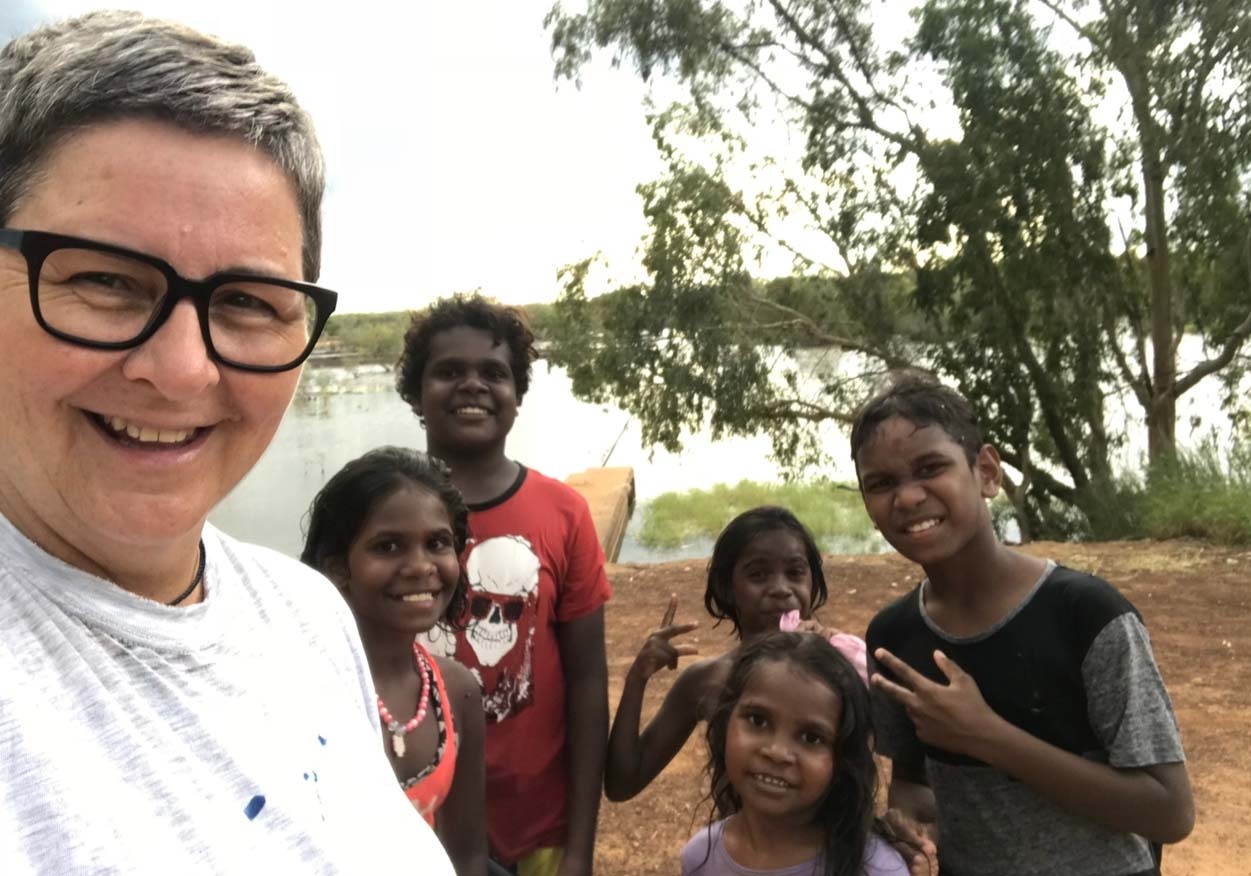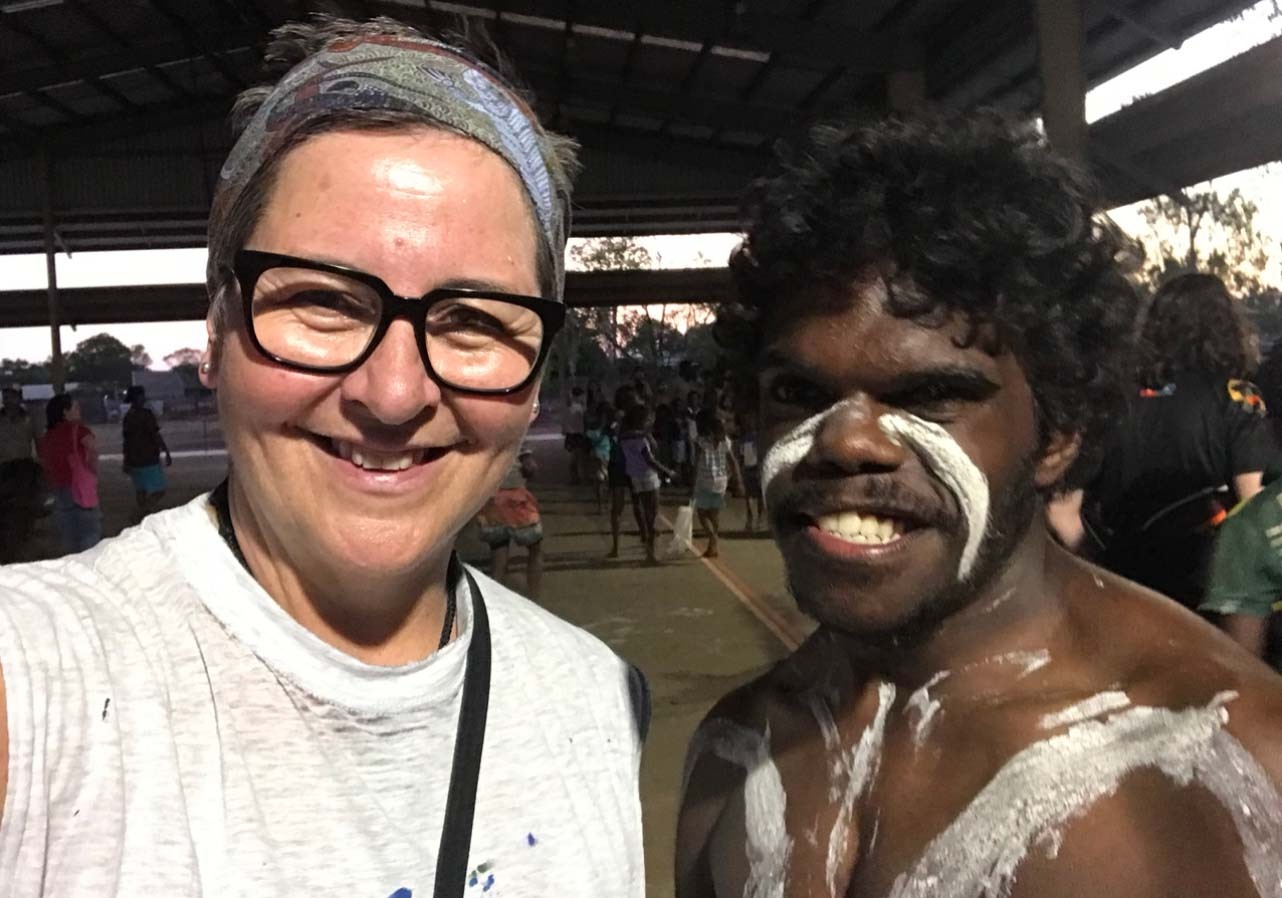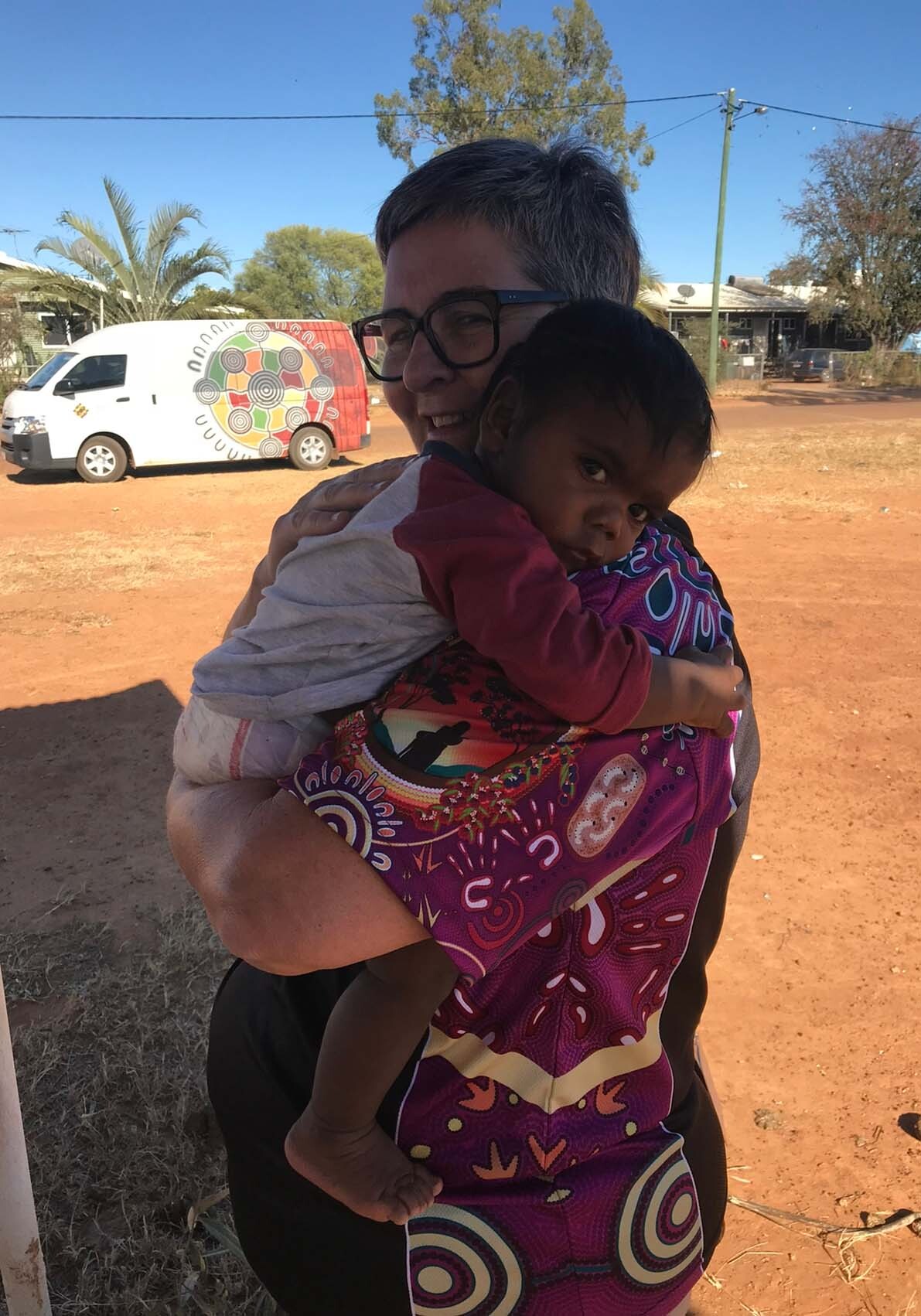
“I always wanted to help a community that was in need,” says Lesley. “The health statistics here [in Doomadgee], where life expectancy is 49, are some of the worst in the world. Rheumatic heart disease is rife, a condition that’s rare in most high-income countries, yet in Australia it persists in Aboriginal and Torres Strait Islander peoples. It is preventable. Hundreds in this community have diabetes and malnutrition.”
Lesley has been working for four years with Gidgee Healing after being sought out by the Aboriginal healthcare provider when it opened Doomadgee’s first ever primary health care service in 2017.
Until then, the community of around 1400 had one tiny hospital with a couple of rooms for emergencies “where you only went if you were sick,” says Lesley. Today, Lesley sees her role as helping locals embrace prevention and become ‘health seekers.’ And she says it’s working.
“Engagement with people in the community is wonderful,” says Lesley. “We are succeeding in encouraging people to enrol with us.
“We can then identify their chronic diseases – we find adults have at least three – and put management plans in place. We encourage regular health checks – not wait for something to go wrong.”
Rheumatic heart disease, caused by repeated infections such as impetigo, skin sores and scratchy throats, should not be here, says Lesley. She has seen patients as young as seven with the disease.
“It used to be that people were so infected, the common situation was the need for antibiotic injections,” says Lesley. “That’s changing with more knowledge in the community. Now, even young children at school rock up when they have one sore that needs a band-aid.”

People becoming ‘health seekers’ represents a massive change from the origins of the community, says Lesley. Doomadgee began as a mission in the 1930s, when girls and boys, members of the Stolen Generation, lived in separate dormitories and were used as labour on neighbouring pastoral stations. The mission finally left in the 1980s.
Lesley’s grandmother, a Gringai woman, left the area she was raised in when her dad was a young boy.
She wanted him to have an education and Lesley remembers stories of her nan, siblings and parents living in a two-room shack on the Karuah River.
“Self-determination is a wonderful concept, but logically, this can’t be done overnight. We need to be trained and be capable of being independent and to succeed,” says Lesley.
Lesley pointed out that, apart from the short history of medical support in the community, there are added hurdles of poverty in the area where only 30 per cent of people have a fridge, many have poor literacy skills, and the lack of phones and computers make it difficult to access services.

Lesley believes education is the key, a concept drummed into her since she was a child by her dad (Les Elvin), an eminent Indigenous artist, who considered education was the way to protect culture and people.
Lesley grew up in Cessnock in the Hunter Valley on Wonnarua Country. She grew up with high-achieving relatives who were determined to make a difference.
“In my mind the solution is education, getting the kids into school,” says Lesley. “When you have good education, you make better health choices.
“There’s only 45 per cent attendance in Doomadgee at the moment but there are some good people in the community and good programs being promoted, such as an after hours school, and holding school sessions down by the river.”
Lesley also strongly believes that health promotion programs need to focus on today. “Looking to the future is fine if you have a future to look forward to,” she says.
“For many of these people, they don’t see much future; they’re interested in today. So our health programmes have to focus on the benefits today – letting them know ‘you’ll be able to walk down to the river without getting breathless’ for example, and ‘you’ll be able to bait your own fishing hooks’.”
Lesley says she ‘fell into nursing’ when she left high school at the end of the 1970s. Before the introduction of Nurse Practitioners (NP) – Registered Nurses who have completed additional university study at Master’s degree level and the most senior and independent clinical nurses in our health care system – Lesley was working at advanced levels, particularly when she was in rural hospitals. She took advantage of all opportunities for advanced training on offer to become the country’s first Indigenous NP and the 13th overall.
“I’ve loved every job I’ve had, and I love my work here – but it’s not all a bed of roses,” says Lesley. “I get despondent about the lack of resources and feel frustrated when I can’t do all the things we need to do.
“I’m heading for 61. I look to the future with hope for this community. But I have to accept that I will be retired before full benefits are evident.”
